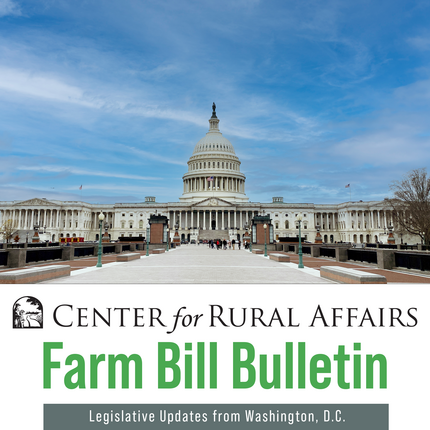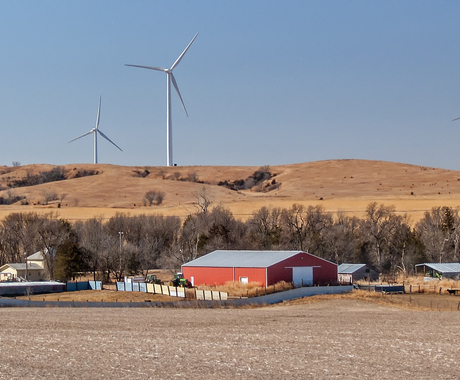By Kate Hansen, former staff member
This blog is part of our “Farm Bill Bulletin” series, which provides intermittent updates on the development and status of our nation’s next farm bill.
On Thursday, President Joe Biden signed a continuing resolution to avert a government shutdown. In addition to funding the U.S. government, the legislation includes a significant measure for rural communities—an extension of the 2018 farm bill.
The Agriculture Improvement Act of 2018 expired on Sept. 30. While there were short term impacts, more significant consequences loomed in the new year if no action was taken.
The approved legislation, a product of negotiations between the House and Senate, extends provisions set by the 2018 farm bill through Sept. 30, 2024. This action is particularly important as it will keep commodity programs from reverting to antiquated “permanent laws” established in the 1930s and 1940s—commonly referred to as the “cliff effect.”
The bill will also fund programs without baseline funding and re-establish legal authority for programs to operate. Without an extension, the Local Agriculture Market Program and the Farming Opportunities Training and Outreach program, for example, faced a lapse in the administration of new grants.
With the farm bill extension in place, Congress can focus on a new five-year farm bill, with negotiations likely to continue into early next year.
The Center for Rural Affairs will continue to work with lawmakers to implement changes needed in the next farm bill, including legislation that would reauthorize and improve the Rural Microentrepreneur Assistance Program and expand opportunities for rural small businesses. More information about the Center’s farm bill priorities can be found here.
If you have any questions, please contact us at [email protected] or 515.215.1294.





